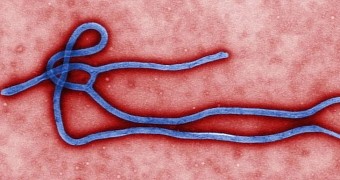Shortly after giving the thumbs up to plans to use experimental drugs to try and contain West Africa's ongoing Ebola outbreak, the World Health Organization announced that old-fashioned blood transfusions might help treat this disease.
The announcement was made this past September 5, in the aftermath of a 2-day-long meeting during which experts assessed several Ebola therapies and vaccines, and pinned down the most promising treatment options.
It's important to note that studies are yet to confirm that blood transfusions can successfully treat Ebola. Still, specialists with the World Health Organization think that there is sufficient evidence to give this treatment option a try.
As detailed by Nature, it is believed that people infected with the Ebola virus can experience an improvement in their condition and have an easier time battling the disease, were they to be transferred whole blood or purified serum from survivors.
This is because, during such transfusions, antibodies present in the blood of folks who have somehow managed to survive the condition would be added to the immune system of those still infected. These antibodies should help sufferers overcome the condition.
Given the availability of donors, the specialists with the World Health Organization argue that this treatment option is by far the one with the greatest potential to be implemented on a large scale in the regions hit by the ongoing outbreak.
Before transfusions can be used to try and contain the epidemic, health care workers and volunteers in West Africa must be trained how to safely collect blood from Ebola survivors. What's more, they must be taught how to distinguish between blood that is safe to transfuse and blood that still carries pathogens.
Apart from giving the green light to the idea to use whole blood or purified serum transfusions to treat Ebola, World Health Organization experts gave their blessing to two potential vaccines, i.e. a chimpanzee adenovirus vaccine (ChAd3) and a recombinant vesicular stomatitis virus (rVSV).
Both these vaccines have until now only been tested on animals, but have proven most efficient. The idea is to roll out clinical trials and check if they can also protect humans against the Ebola virus. Should they perform well during these trials, the vaccines will likely be administered to folks in West Africa.
It is estimated that, since the outbreak debuted back in December 2013 until now, some 3,700 people in West Africa have been infected with the Ebola virus. The epidemic has until now killed about 1,850 individuals, and stands to make more victims if experts fail to contain it in the weeks to come.

 14 DAY TRIAL //
14 DAY TRIAL //